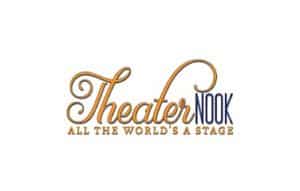Self Consciousness prevents Good Acting

Often beginning actors get into theater or film thinking they are going to conquer the world with their amazing talents, win accolades, and acting awards. When in reality acting is truly about loving the art form, learning, and practicing the craft to the best of your ability. It’s about you serving the audience rather than the other way around.
The following offers you insight to develop good acting practices
Too many times young actors get into the mindset that the play, scene, television series, the film is actually about what a great actor they are. No, it’s actually about the big picture, the ultimate aim of the production.
Get Out of Your Own Darned Head
When actors of little experience or with a sense of narcissism have a scene to act in, they can feel as though the scene is ‘about’ them and not the overarching objectives of the scene.
Often the actor is trying to remember their lines and loses the ability to listen. Listening isn’t simply hearing someone speak and perform, it’s the ability to truly hear, absorb, and immerse yourself, and let your true instincts reveal themselves. This should all be done utilizing your vulnerability in the appropriate moment.
Too often we intellectualize our roles which often elicits a flat unimaginative and or performance.
Embrace Your Vulnerability
To develop good acting practices, one needs to allow one to notice the inner feelings which arise and utilize them in the right moment. If we hide our inner thoughts and true natures because we are afraid of what other people will think of us, we are in danger of giving a poor performance.
This can get in our way to connect with our vulnerability. Utilizing our vulnerability is extremely important in performance work, especially in acting because our job is to move the audience in some way. Getting in touch with your vulnerability in a genuine manner helps the audience feel a certain release or catharsis.
We need to embrace and reveal our true natures, especially in acting and not to let our self judgment take over.
How Do We Get Reveal Our True Selves on Screen and in the Theatre?
The audience wants to be moved in some way. Your job as an actor is to be the cog in the wheel which allows the audience to feel the desired effect, or benefits in some way from the production as a whole.
We need to get real with ourselves and practice daily to feel our true emotions. We do this by checking in on our emotions on a sporadic moment during any given day. How are you feeling right now? Are you feeling content, frustrated, angry, hungry? It’s helpful to notice how you’re feeling so you can actually acknowledge it, and utilize it, if and when the moment calls for it.
Allow yourself to truly feel your emotions. Let the feeling sit with you and notice it. Let it do its a thing. Does that mean you need to let rip at your kids who haven’t cleaned up their toys, no, it simply means, allow the feelings within be acknowledged?
If you as an actor, dancer or performer get accolades as a result of your work, that’s all very well and good, but loving your work and loving yourself in work are two different things.
See The Big Picture- It’s Not About You
Good Acting practices requires you to not only know your lines but know the play, scene, and film as a whole. How does your character fit in with other characters and the plot as a whole? What is the aim of the movie and for those of your character those whom you interact with? How does that gel with your motivations as a character?
Stanislavski asked his students to look at the throughline of each scene and find the moments which are considered a type of phrasing – beats.
Sometimes newer actors might only consider their own lines as important and to know when they come in. They may feel that because they know their lines, and they know their basic blocking and interations with others, that is all they need to think about.
The actor is in danger of stuffing up their lines on stage and not being able to save other actors if they stuff up. Our job is to know our own motivations, other character motivations, the scene through line, objective of the scene and play as a whole.
Read the play, scene, film project as a whole and learn about the other characters, the reasons why they are doing the things they are doing (what do you want and what do they want?) and understand the plot of the story.
If you don’t know any more than simply your own lines, how can fully develop your acting instincts but understanding why your character does what they do and when they do it.
Start with the Big Picture (overall framework, theme, the reason for existing) and work your way backward. Go from large to the small picture (scene). Note and develop your character and their motivations and objectives, scene by scene, Act by Act, and as a whole.
Stay with these sentiments and you’ll develop good acting practices in no time.
What is Self Consciousness in Acting?
It’s the reaction you have when you believe that all eyes are on you and everything relies on you and you alone. It’s an awkward awareness of oneself that takes away from the overarching theme of the process.
It’s an unhealthy way of thinking. You are so caught up in your own awareness, and portrayal and you aren’t truly locked into the scene. You aren’t using your natural instincts to move you through the scene.
This is where you are in danger of knowing what’s going to happen before it happens and your audience can pick up on that. You are preempting the scene because you already know what’s going to happen.
It is almost like self-focus is a type of narcissism, which makes you think that the issue is all about you. But if you focused on the fact that the production is about you pursuing what it is that you want.
When you focus on the what it is that you want, then your focus is away from you and in the scene itself.
Good books which help use learn the craft and nail our performance
Avoid Manipulation of your Audience
The audience wants to be moved in some way. If an actor has a scene that elicits emotion, it would be wrong for that actor to manipulate the scene and therefore the audience by over-emoting.
Some inexperienced actors allow their emotions get the better of the scene and end up losing the scene because they lacked the self-control needed to keep the scene moving forward.
But They Laughed Last Night
What might have worked the night before, for an actor, where they got a roar of laughter unexpectedly or expectedly, made them feel as though they need to elicit the same response the next night.
Actors are disappointed to see that no matter how hard they worked the audience to feel a certain way in a particular place in the play, only to find that the moment went flat.
That is often because they are subconsciously manipulating the audience into an emotional stance. The audience feels this in a subconscious way and the moment doesn’t feel spontaneous but projected or preempted…manipulated.
As an actor, your job is to help allow an audience to find recognition, insight, or a cathartic release to the stimulus in front of them. If the audience has a genuine response to a point in the production, you’ve done your job. And that makes a good actor.
In Conclusion
Good acting takes a willingness to use one’s skills capabilities and vulnerability. This is all without artifice, over-performing, or manipulating emotions out of an audience. The actor would do well to see the big picture of the production and their role in it. When the actor is comfortable and confident to use their true selves in the role, they have done themselves and the audience justice.

